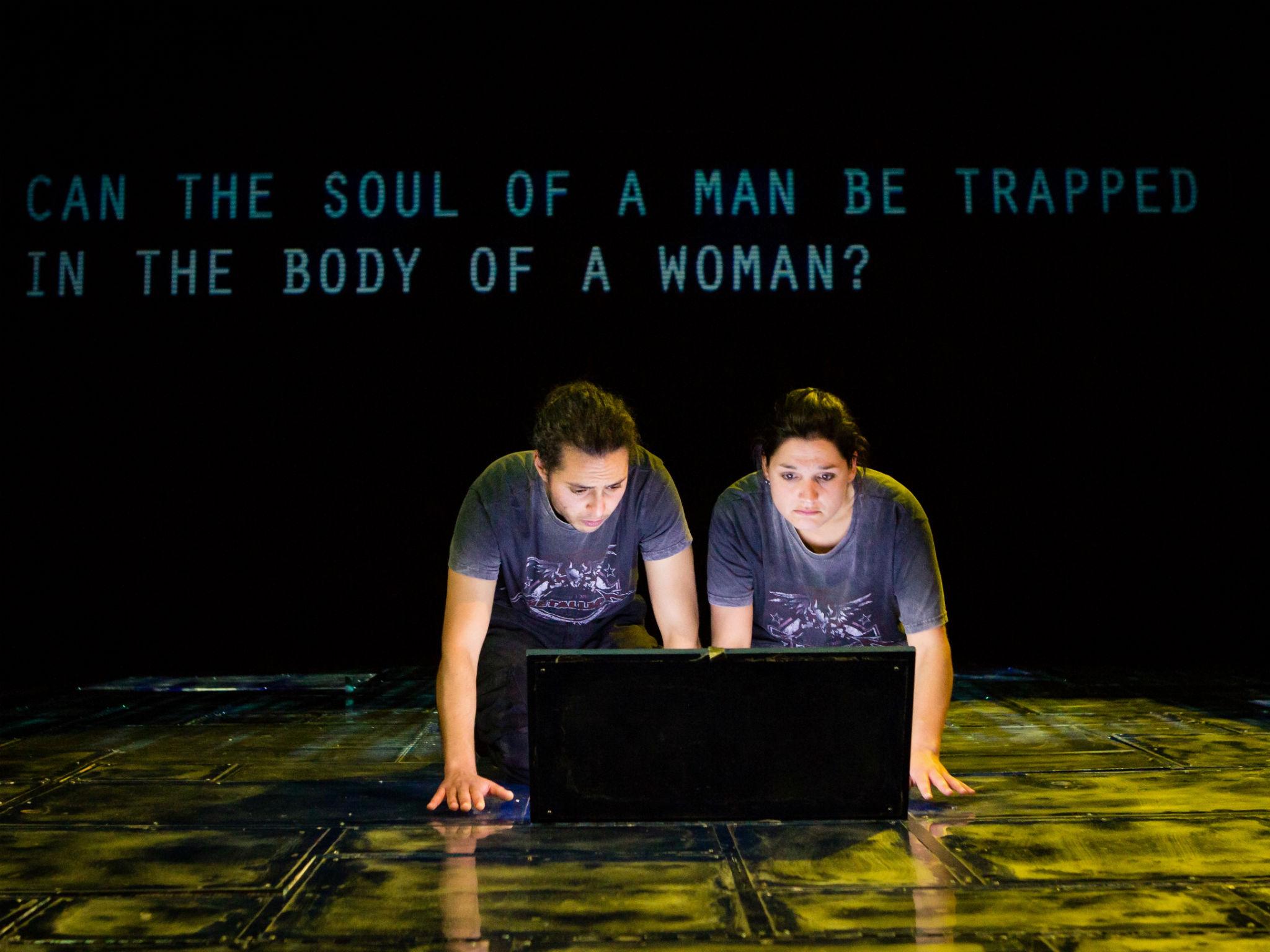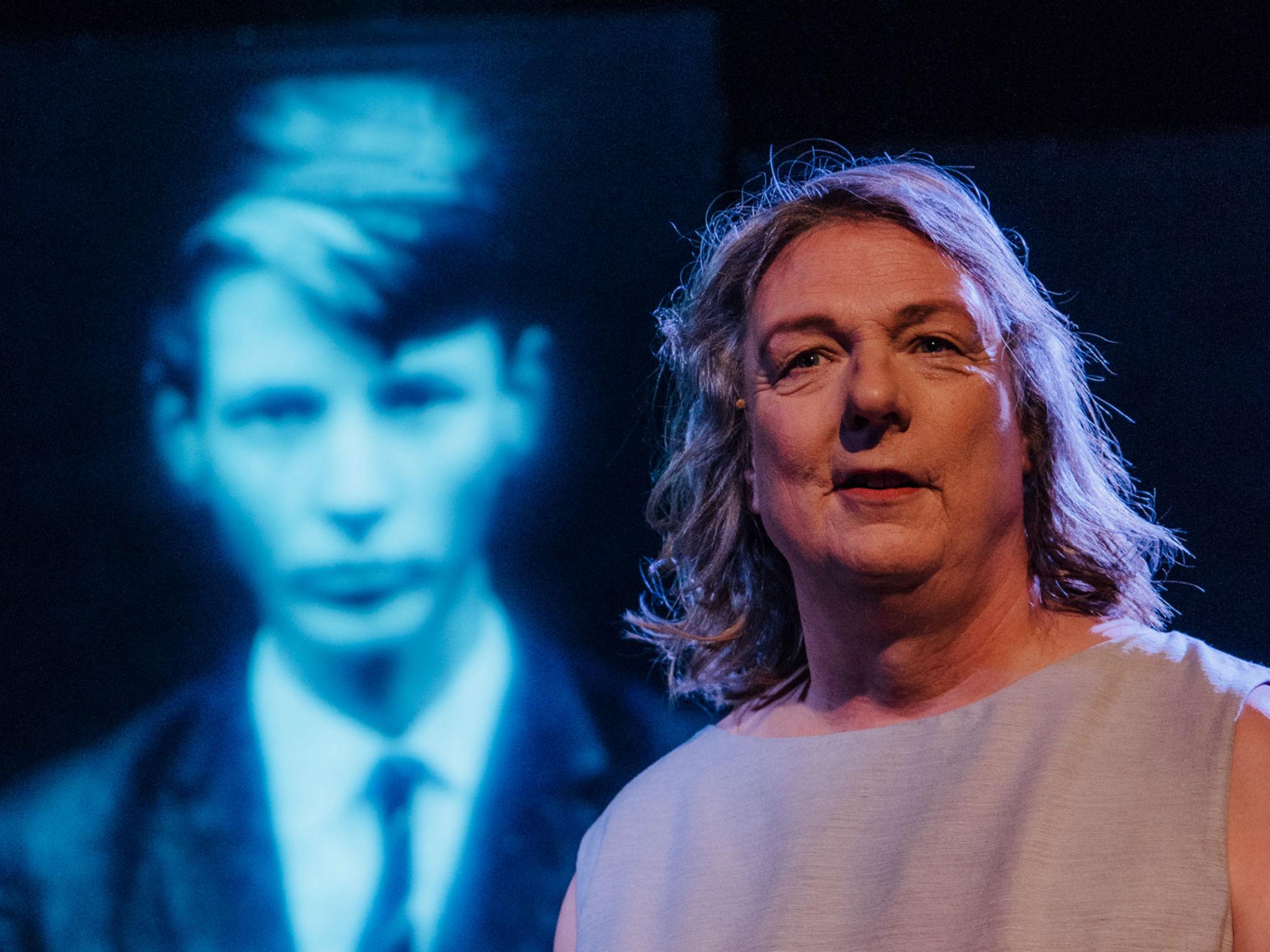Transsexual theatre: two brave new Edinburgh plays tell of harrowing journeys
Sylvia Morgan explores how the struggle for transgender people is a leading theme at this year’s Edinburgh Fringe

Your support helps us to tell the story
From reproductive rights to climate change to Big Tech, The Independent is on the ground when the story is developing. Whether it's investigating the financials of Elon Musk's pro-Trump PAC or producing our latest documentary, 'The A Word', which shines a light on the American women fighting for reproductive rights, we know how important it is to parse out the facts from the messaging.
At such a critical moment in US history, we need reporters on the ground. Your donation allows us to keep sending journalists to speak to both sides of the story.
The Independent is trusted by Americans across the entire political spectrum. And unlike many other quality news outlets, we choose not to lock Americans out of our reporting and analysis with paywalls. We believe quality journalism should be available to everyone, paid for by those who can afford it.
Your support makes all the difference.The struggle for transgender people is a leading theme at this year’s Edinburgh Fringe thanks to a new double bill from the National Theatre of Scotland, Eve/Adam. The shows begin in different times and places, but both are about the profound transgender challenges around identity, transition and transformation of the self.
Adam is the true story of Adam Kashmiry, a transman growing up in Egypt, alienated by family, community and even himself. His repression takes place in the context of a wider political oppression. His internal revolution is juxtaposed with the Arab Spring, culminating in his exile to Scotland in 2010. It illustrates the arduous procedures experienced by asylum seekers to the UK, not least the lingering limbo while awaiting a decision on their status.
Kashmiry himself is the narrator, supported in his first stage role by Neshla Caplan as his female pre-transition self. The two work seamlessly together, drawing in the audience through different character and scene transitions, propped by a deftly designed, minimalistic stage set.
Having two actors articulate two sides of the same self is in keeping with the Scottish literary tradition of the antisyzygy – that of conflicting polarities within one entity (Robert Louis Stevenson’s The Strange Case of Dr Jekyll and Mr Hyde is a good example). This device manifests what many trans people describe as having: two contradictory voices inside their brain, one male and one female.

Writer Frances Poet has worked with Kashmiry to produce a witty script that remains true to his story, while enriched with political and historical allusions and clever linguistic observations on the binary constructions of language. In an allusion to the transgender theme, a repeated refrain is that “English contains many words that mean the opposite”: “sanction” meaning both to permit and to penalise; “transparent” meaning both to reveal and to conceal.
Adam laments that he “cannot be loved in the Arabic language” due to its gendered inflections, so that “I love you” takes masculine and feminine forms in Arabic. And in a moment of dramatic climax, when his mother tells him she loves him, she uses the male inflection to mean she loves him as her son.
Director Cora Bissett’s interweaving of internal and external voices, and drama and reality, create an overall sense of docudrama for this complex, inspired production. From the haunting music composed by Jocelyn Pook to the attention to detail from voice coach Morag Stark, the cooperation is evident at every level.
A unique component is the astonishing Adam World Choir, comprising the collective contributions of 120 transgender individuals simultaneously performing online across the world, project-managed by Leonie Gasson. It culminates in the powerful and moving “We are Adam we are one”. The overall result is remarkably good theatre: dynamic, surprising, cathartic, entertaining and revealing something about the world in a new way.
The second play, Eve, is very different, though it shares common transgender subjects such as concealment, solitude, separation and exile. Both protagonists ultimately achieve, in the words of sole performer and director Jo Clifford, a sense that “this is who I am meant to be”. They share a deep gratitude and joy for having got there, of “coming into the light”.

Eve is very much Clifford’s singular creation, though the script is co-written by Chris Goode and directed by Susan Worsfold. Clifford’s large body of work has grown increasingly autobiographical over the years, and this, her 91st script, is intensely personal. It centres on her own journey towards gender fulfilment and self-actualisation as a transwoman – her own life story related by herself.
Clifford knows that narrative is a transgender strategy for survival and she inspires and assists, empowering other trans people to tell similar stories about their developing selves. Her work within the transgender community is well known and influential. After the show, several transwomen in the audience commented that it could have been their story.
They also made the point that these plays, particularly Adam, may not have ended so hopefully if they hadn’t taken place in Scotland. Scotland was recently ranked the most inclusive place for LGBT legislation in Europe, which echoes the experiences of many other trans people I have spoken to.
Where Adam has its passionate choir finale, Eve ends with Clifford addressing her pre-transition male self. She says: “All the dreams you had have all come true”, and “courage has kept us both alive”.
Both shows must have required a great deal of courage. It is risky and brave to share your journey of becoming with a bunch of strangers in a theatre. Yet from the audience reaction, most of those strangers were moved, some to tears. Perhaps that is the key to changing social attitudes through theatre, one play at a time.
Sylvia Morgan is a PhD researcher at the University of Glasgow. This article was originally published on The Conversation (theconversation.com)
Join our commenting forum
Join thought-provoking conversations, follow other Independent readers and see their replies
Comments